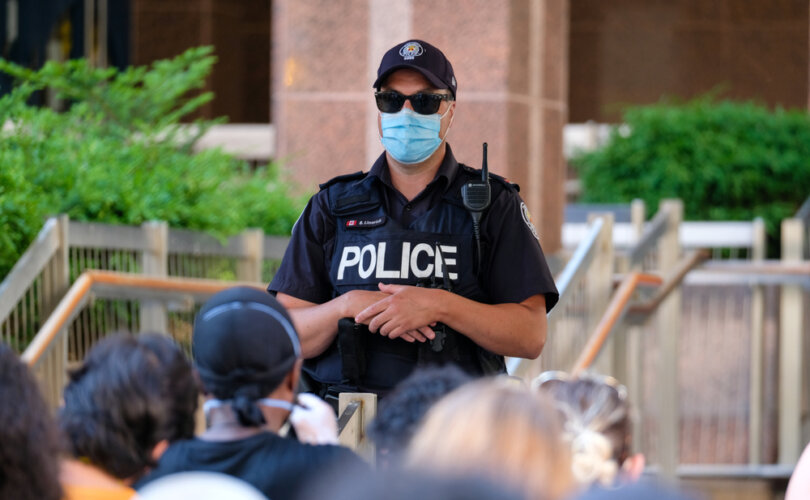Toronto Police apparently have a magical switch that allows public nudity to be totally fine and dandy during the annual “Pride March.” Who would’ve thought that baring it all in front of kids could be so perfectly acceptable when it’s accompanied by rainbows and glitter? I guess we can all look forward to a future where indecent exposure becomes a cherished tradition at various family-friendly events. Stay classy, Toronto Police! Keep the surprises coming; the world needs more unconventional exceptions to the law.
Toronto Police have sparked controversy by allegedly allowing public nudity during the annual gay “Pride March,” despite it being illegal in other situations. Concerns were raised after multiple men were seen fully exposed in front of young children during the event. This article delves into the incident, examining the police response and the implications of permitting such indecent displays.
Did Toronto Police Just Make an Exception for Naked Parades? What a Time to Be Alive! https://t.co/aeJ8xcIgMR
— The Carnivore Den (@CarnivoreDen) July 2, 2023
Toronto Police’s Controversial Stand
Toronto Police’s alleged confirmation of allowing nudity specifically at the “Pride March” has raised eyebrows. While public nudity is generally illegal, an exception seems to be made for this annual event, as revealed in a phone call between a police officer and political commentator Rob Primo. This admission has ignited a debate on whether such an exception is acceptable or discriminatory.
Unveiling the Concerns
Primo, in a video posted on social media, expressed his concerns over witnessing people naked in front of children during the “Pride March.” He questioned the officer about the acceptability of such behavior, particularly highlighting the stark contrast with other situations where public nudity would not be tolerated. The officer acknowledged the occurrence, stating that it happens every year, seemingly confirming the exception made for the event.
The Toronto Pride March and Its Controversial Displays
The Toronto “Pride March,” held recently, featured various instances of nudity and sexually explicit costumes, prompting many to question why police did not intervene to prevent indecent displays, especially considering the presence of children. Videos captured naked men carrying signs promoting nudity and performers dressed in highly sexualized costumes. In one instance, a young child in a stroller gazed at a performer wearing a giant penis costume, which covered their entire head.
Public Outcry and Opposition
As video footage circulated on social media, public backlash grew, and Bishop Strickland of Tyler Texas condemned the incident, denouncing the exposure of innocent children to such indecent acts. The Toronto Police faced criticism for permitting these displays, which directly contradict the Canadian Criminal Code.
Legal Contradictions and Police Response
The public displays of indecency allowed by Toronto Police during the “Pride March” appear to contradict the Canadian Criminal Code. The code explicitly states that exposing genital organs to a person under 16 years of age for a sexual purpose is a criminal offense, punishable by imprisonment. However, questions remain unanswered as to why the individuals involved were not arrested, despite the code’s clear guidelines.
Taking a Stand Against Indecency
The controversy surrounding Toronto Police’s alleged endorsement of public nudity during the “Pride March” has sparked a wider debate on the boundaries of acceptability and the protection of children. With conflicting views and legal contradictions at play, it remains to be seen how the authorities will address the concerns raised by this incident. As the community reflects on these events, the need to balance personal expression, inclusivity, and safeguarding the well-being of vulnerable individuals must be carefully considered.










